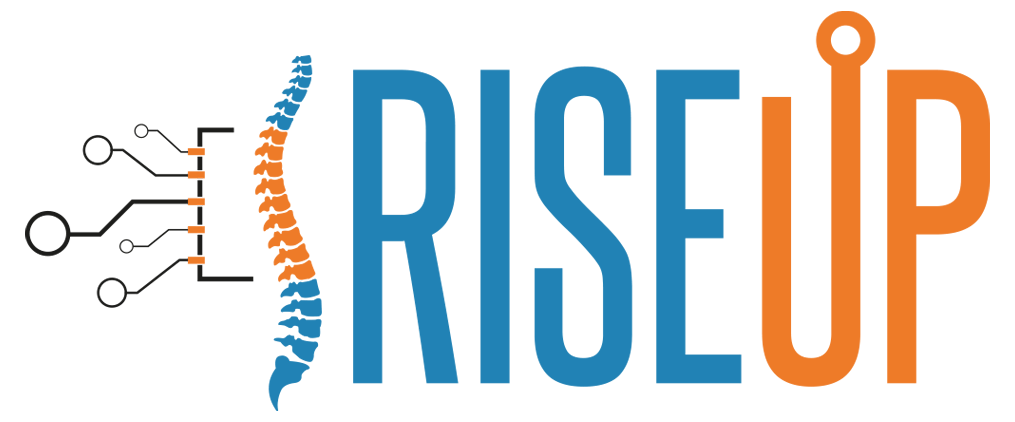Objectives
Spinal Cord Injury (SCI), a major cause of paralysis, currently has no effective therapies. Every year almost 500.000 people are diagnosed with SCI worldwide. In Europe, the average investment is 198,000 € in health care during the 1st year/ patient.
The difficulty on the neuronal restoration after SCI is based on the complex cascade of events that inexorably cause a degenerative chronic stage mainly favored by the non-permissive environment and limited capacity for axonal regrowth.
Multifaceted strategies are considered the unique solution for functional restoration by including cell substitution, neuroprotection and axonal growth promotion.
RISEUP proposes to attain neuronal functional regeneration after SCI by an unprecedented and unique bio-hybrid-compatible electro-activated and wireless-rechargeable implantable technology.
RISEUP introduces high voltage microsecond electric pulses (micropulses) stimulations and low amplitude direct currents on a combination of stem cells (induced neural stem cells and multipotent stromal cells), whose transplantation is facilitated by an innovative scaffold biomaterial.
The RISEUP concept is that micropulses, being able to impose and control cytosolic Calcium oscillations, will facilitate cell maturation, survival and neurotrophic factors secretion. Because Calcium signaling is essential for neuronal activity, endogenous neuronal re-connections will also be favored.
RISEUP goal, even if ambitious, is concrete due to the multidisciplinary partners’ competences, initiating from TRL1 a radically new line of technology (electro-activated, remotely controlled, biocompatible, biodegradable cell-containing implants for the repair of neuronal lesions) establishing its proof-of-principle (TRL3). The long-term vision of RISEUP is the radical change in SCI treatment modality to assure the cure delivery without any machinery connection, dramatically improving patients’ quality of life.








